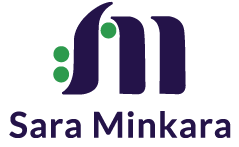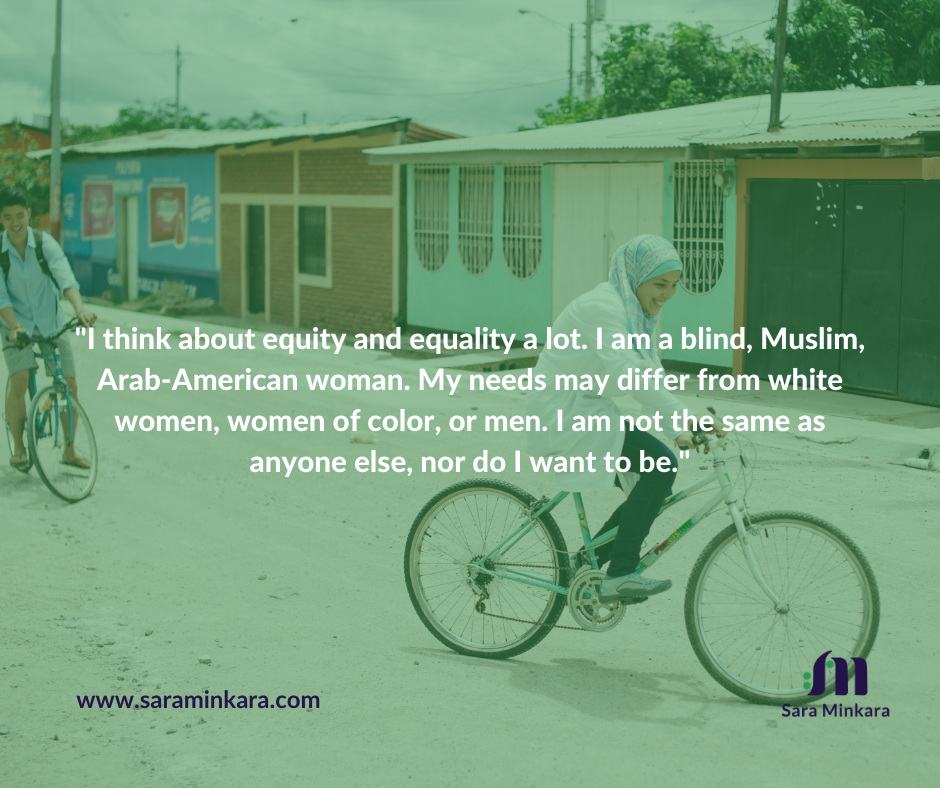Women’s Equality Day: Celebrating ALL Women
Today is Women’s Equality Day. On this day, we celebrate the 19th Amendment, passed in 1920 and prohibiting state and federal governments from denying (white) citizens the right to vote based on sex. It was another 50 years before black women had the same benefit. Commemorating a date where women were treated in an inherently unequal manner while naming it Equality Day is of course ironic. But it also raises the truism that we aren’t homogenous to begin with, and accentuates that equity rather than equality is key. And so, Women’s Equality Day is at once a celebration of our achievements and struggles, highlighting the imperfection of our solutions and the necessity to persevere.
I think about equity and equality a lot. I am a blind, Muslim, Arab-American woman. My needs may differ from white women, women of color, or men. I am not the same as anyone else, nor do I want to be. What I do want is equity, but not just for myself. All people are different, but we should be given the same opportunities to thrive and progress while accounting for those differences. Equity means providing the necessary resources to balance access and opportunity. It requires recognition of our differences, and frequently necessitates adjustments to existing conditions to ensure fair, equitable outcomes.
There has been increasing recognition of the need to create tailored solutions to address complex barriers to equity, but I have noticed that disability is frequently absent from the discussion. The needs and voices of disabled women are even less likely to be specifically included. And there is a lot to address, from historical context to persistent bias, all of which compound to inhibit disabled women from succeeding at the same rates and levels of distinction as their nondisabled peers. Yet there is an epidemic of silencing and disempowering disabled women, who are subject to forced sterilization or conservatorship and experience higher rates of violence than women without disabilities. And they are frequently denied meaningful employment opportunities through insufficient workplace accommodations. So while we are not the same, we should have access to the same opportunities – not only from a human rights perspective, but from a value-based perspective.
In addition to the tendency to fully ignore, silence or disempower, there is the separate danger of assumption. To effectively address barriers to equity, we need to recognize and address our biases and assumptions as part of any remedy. Those biases and assumptions permeate our thinking and render any solution inherently inequitable, undermining its success. Assumption and bias are systemic; knowingly or not, we all make assumptions about others just as assumptions are made about us. As a Muslim woman, people frequently assume that I am oppressed or meek because I choose to wear the hijab. They assign their own meaning to my sartorial choices. But modesty is a form of liberation and empowerment for me. During the Tokyo Olympics, it was interesting to watch the supportive narrative develop surrounding female athletes choosing to cover up for gymnastics and volleyball. Their choices were widely embraced as a “turning point” wherein women asserted control over their bodies and bodily autonomy. I agreed, but was also surprised since Muslim women have consistently been met with a very different narrative for asserting control over our own bodies: that wearing hijab could only be the result of patriarchal force and submission rather than modesty by choice worth celebrating.
Acknowledging our differences is a necessary step on our journey to unity. It does not divide us. Because we are different, and recognizing those differences honors each of us in a way that ignoring or denying our individual experiences does not. Choosing respect and inclusion also requires that we acknowledge our history of racism, sexism and ableism and the systemic barriers in their stead. To avoid addressing these forms of bias is to accept and perpetuate them; instead of silencing and disempowering we can choose equity. We can make the choice to empower and to reject bias every day, and to work toward equitable solutions to cure our systemic imbalances. That would certainly be something to celebrate on Women’s Equality Day, and every day.


